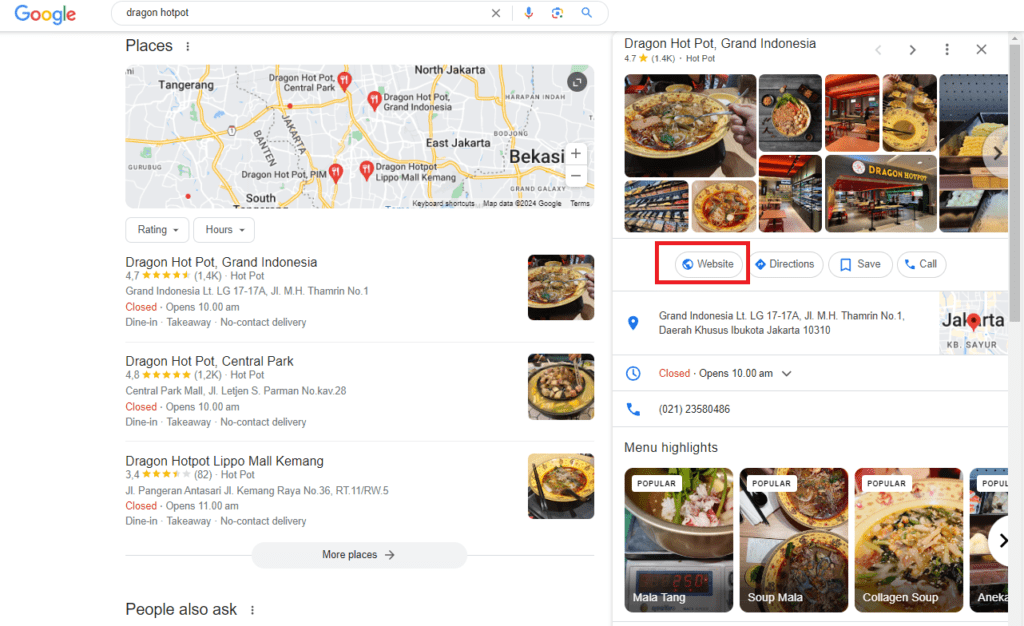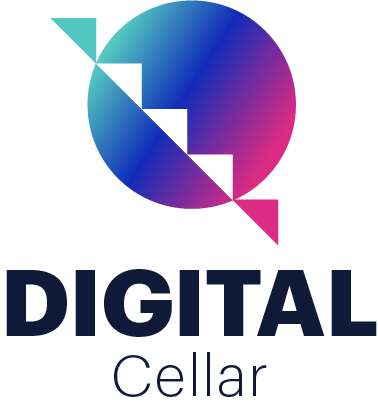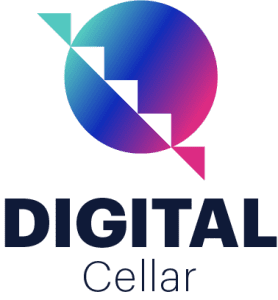What Is Off-page SEO?
Off-page SEO refers to all the activities you do outside of your website to raise the ranking of a page with search engines. Unlike on-page SEO, which involves elements on your website like content and site architecture, off-page SEO is about boosting your site’s reputation and authority through external means.
In the vast universe of SEO, off-page techniques play a pivotal role in elevating a website’s visibility and authority. These strategies go beyond the typical website tweaks, involving practices that enhance its reputation across the broader online landscape. From link building to social media engagement and influencer collaborations, off-page SEO is a dynamic arena that demands strategic finesse. Let’s discover how these techniques can turn your website into an online sensation!
OffPage SEO Techniques

Link Building
Link building is a crucial aspect of off-page SEO, and it involves acquiring hyperlinks from other websites to your own. These links act as pathways that connect different web pages, and search engines use them to crawl the web, discovering new pages and determining how well a page should rank in search results.
The premise is simple: when reputable and relevant websites link to your pages, it’s akin to a digital endorsement, signifying credibility and authority. Quality prevails over quantity in the world of link building; a few high-calibre backlinks hold more weight than a multitude of less reputable ones.
The process involves various tactics, from creating shareable content that naturally attracts links to outreach efforts aimed at securing connections with influencers and other websites. Link building not only elevates a site’s visibility but also contributes to its perceived value in the eyes of search engines, ultimately influencing its ranking in search results. In essence, it’s the web’s way of acknowledging and rewarding valuable, well-connected content.
Here’s some important tips of link building in off-page SEO:
- Building Connections
Link building is essentially about building connections between websites. When one website links to another, it’s like a vote of confidence or a recommendation - Authority and Trust
Search engines view these links as indicators of a website’s authority and trustworthiness. If reputable sites link to yours, it’s seen as a positive signal. - Types of Links
There are various types of links, but two main categories Internal links and external links. Internal Links are links within your own website that connect different pages. External Links (Backlinks) are links from other websites pointing to yours. - Quality Over Quantity
It’s not just about the number of links; the quality matters more. A few high-quality, relevant links can be more beneficial than numerous low-quality ones. - Relevance is Key
Ideally, the websites linking to yours should be relevant to your content. For instance, if you have a cooking blog, a link from a popular food website carries more weight. - Natural Link Building
Search engines value naturally acquired links. This means links that are editorially given and not manipulated. Creating valuable, shareable content often attracts such links. - Outreach and Relationships
Sometimes, actively reaching out to other websites for link opportunities is necessary. Building relationships with other site owners can lead to mutually beneficial link placements. - Avoid Unethical Practices
It’s crucial to steer clear of unethical practices, such as buying links or engaging in link schemes. Search engines penalise websites that attempt to manipulate their algorithms.
In summary, link building is about establishing a network of connections across the web, with the goal of enhancing a website’s authority and visibility in search engine results. It’s a dynamic and strategic aspect of off-page SEO that requires a thoughtful and ethical approach.
Social Media Marketing
Social media marketing is a crucial element of off-page SEO, dedicated to promoting your website and content across diverse platforms. While social signals, such as engagement on social media, don’t directly influence rankings, the visibility and traffic generated through these channels positively impact your website’s authority and online presence.
Establishing a presence on popular platforms like Facebook, Twitter, Instagram, TikTok and LinkedIn is essential. Create profiles that authentically reflect your brand identity, sharing valuable information about your website, products, or services.
Incorporating links back to your website in social media posts is a strategic move, guiding your social audience to your site and signalling content value to search engines. But, your social media presence also needs to be great, otherwise you’re not actually generating traffic from social media to your website.
Explore the potential of social media advertising, particularly on platforms like Facebook and Instagram, offering targeted options to reach specific demographics and drive traffic.
Embrace the power of video content on platforms such as YouTube, Facebook, TikTok and Instagram to create engaging narratives aligned with your website’s niche. Maintain a consistent posting schedule to keep your audience interested and contribute to a positive online presence. Encourage social sharing by integrating social sharing buttons on your website, enabling visitors to easily share your content, thereby amplifying its reach. Utilize social media analytics tools to monitor the performance of your efforts, tracking metrics like engagement, clicks, and conversions to understand audience resonance.
Guest Blogging
Guest blogging in off-page SEO is a strategy where you create content for other websites in your industry or niche. The idea is to tap into the existing audience of those websites to increase exposure for your own website and improve its SEO. Here’s how it works:
- Finding the Right Blogs
Look for blogs or websites that are relevant to your industry and have a good following. The goal is to find sites that your target audience visits. - Pitching Your Content
Reach out to the owners or editors of these websites with a proposal for a guest post. Your pitch should include a few topic ideas and a brief summary of what you’ll cover in the article. It’s important to show how your content will add value to their audience. - Writing Quality Content
Once your pitch is accepted, it’s time to write. Your article should be informative, engaging, and in line with the style of the host website. It’s also a chance to showcase your expertise in your field. - Including Backlinks
In your guest post, you’ll typically include a link back to your website. This could be in the author bio section or within the content itself (if it’s relevant and allowed by the host site). These backlinks are valuable for SEO as they signal to search engines that other websites see your content as credible and authoritative. - Building Relationships
Guest blogging is also about building relationships with other website owners and expanding your network in the industry. These relationships can lead to more guest blogging opportunities and other collaborative efforts. - Boosting Your Reputation
By sharing your knowledge and expertise on other sites, you can establish yourself as a thought leader in your industry, which can attract more visitors to your website.
It’s important to start by researching and identifying suitable blogs for guest posting, then gradually build up a portfolio of quality guest articles. Always focus on providing value to the host blog’s readers, as this will reflect positively on your brand and website.
Influencer Outreach
The concept of influencer outreach in off-page SEO is making friends with ‘influencers’ – individuals who have a significant following and hold sway over their audience, usually on social media or blogs. The idea is to collaborate with these influencers to boost your website’s visibility, credibility, and ultimately, its search engine rankings. Here’s how it works:
- Identifying the Right Influencers
The first step is to find influencers who are relevant to your niche. If you’re selling fitness products, you might look for fitness bloggers, YouTubers, or Instagram stars. The key is to find influencers whose audiences align with your target market. - Reaching Out
Once you’ve identified potential influencers, the next step is to reach out to them. This can be done via email, direct messages on social platforms, or through influencer networks. Your message should be personalised, respectful, and clear about what you’re offering and what you’re asking for in return. - Collaboration Proposal
You might propose that the influencer creates content featuring your product or service, writes a blog post about it, or shares it on their social media channels. In return, you could offer them free products, payment, or other incentives. - Creating Quality Content
If the influencer agrees to collaborate, they will create content that includes your product or mentions your brand. This content should be engaging and fit naturally with the influencer’s usual style. - Sharing and Promotion
Once the content is created, the influencer will share it with their audience. This can drive traffic to your site, increase brand awareness, and potentially improve your search engine rankings due to the increased visibility and the backlinks generated. - Building Relationships
Influencer outreach is also about building long-term relationships. A one-off post can be beneficial, but ongoing collaborations can be even more valuable. - Measuring Success
Finally, it’s important to track the success of your influencer campaigns. Look at metrics like website traffic, engagement rates, and any increases in search engine rankings or inquiries.
Remember, the key to successful influencer outreach is finding influencers who align well with your brand and who can authentically endorse your product or service to an audience that would be genuinely interested in what you offer.
Forum Participation
Forum participation in off-page SEO helps boost your website’s visibility and authority. To get started, find the right forums. Ones where your audience hangs out, be it general platforms like Reddit or niche-specific ones. Set up a professional profile, including a bit about yourself or your business, and if possible, a link to your website.
The key here is to share valuable insights. Focus on providing helpful answers, sharing expert advice, and showcasing your expertise without constant self-promotion. Building relationships with other forum members is crucial; it can lead to collaboration opportunities, guest blogging, or other SEO-boosting activities.
When it comes to including links, do so wisely. Some forums allow links in posts or signatures, but use this sparingly and only when it’s relevant to the ongoing discussion. Keep an eye on your brand’s reputation by monitoring what’s being said. Address concerns or negative comments promptly to maintain a positive image.
Staying active is essential. Regular participation establishes you as a trusted community member. Forum engagement is a potent off-page SEO tool—it drives traffic, enhances brand reputation, and indirectly boosts search rankings by establishing authority. Remember, the focus should be on adding value to discussions rather than just promoting your website.
Local Listings and Directories

Local listings and directories play a vital role in off-page SEO, functioning like a digital Yellow Pages for businesses. These platforms, including Google My Business, Yelp, and specialized local directories, offer a space to showcase essential information such as your business name, address, phone number, and website. This makes it easier for people to find your business, especially when searching for products or services within your local area. Understanding how these platforms work and why they matter is key.
Local listings and directories act as online databases, allowing businesses to present their details. Major platforms like Google My Business and Yelp, along with niche-specific directories, contribute to the visibility and discoverability of your business. The significance lies in the positive impact on local SEO, increasing the chances of your business appearing in relevant search results. Consistent and accurate listings not only aid in local searches but also contribute to the overall credibility and authority of your website, a crucial aspect of effective SEO strategies.
To make the most of local listings and directories, it’s essential to claim and optimize your business listings. Start with prominent directories, ensuring your profile is complete and accurate. Consistency is key – maintain uniform information across all listings, from business names to contact details. Providing detailed information, including business hours, descriptions, photos, and services offered, enhances the attractiveness and informativeness of your listing. Encourage customer reviews, as positive feedback can boost your business’s visibility and appeal. Regularly update your listings to reflect any changes in business information, ensuring accuracy and relevance.
Additionally, exploring local directories specific to your city, region, or industry can further amplify your targeted reach. By effectively leveraging local listings and directories, businesses can significantly enhance their online presence, especially in the realm of local searches. This strategic approach stands as a crucial pillar of off-page SEO, essential for businesses aiming to attract and engage a local customer base. Check out our article on Google My Business and how is it important to your business here.
Content Marketing
Content marketing is about creating and sharing valuable, relevant, and consistent content to attract and retain a clearly defined audience. Unlike traditional marketing, it’s less about directly selling your products and more about providing useful or interesting information that can indirectly promote your brand. It involves creating content like blog posts, videos, infographics, podcasts, and social media posts that appeal to your target audience. The idea is to engage and inform people, building a relationship with them.
Quality content can attract backlinks from other websites, which is crucial for SEO. When other sites link to your content, it signals to search engines that your site is a valuable resource, boosting your rankings. People also usually share content on social media or other platforms to drive traffic to your website, increasing its visibility and authority too.
Benefits of content marketing:
- Builds trust and authority for your brand.
- Engages and retains your audience.
- Improves your website’s SEO and overall online presence.
Content marketing is a key part of off-page SEO. It’s about providing value to your audience, which in turn can improve your website’s visibility and authority in search engine results.
Creating Shareable Content
Shareable content is created specifically to encourage sharing across social media, blogs, and other online platforms. It could be anything from a blog post, an infographic, a video, or even a meme. The key is that it resonates with your audience and prompts them to share it with their network. The fundamental objective is to cultivate material that not only provides substantive value but also elicits an emotional response, fostering relatability, visual allure, and interactivity.
So, what makes content shareable? First, it’s got to bring something to the table—whether it’s solving a problem, giving out useful info, or just being downright interesting. To create such content, understanding your audience’s interests, focusing on quality, using engaging headlines, incorporating visuals, and encouraging sharing are essential steps. Visuals play a big deal. Quality, both in research and presentation, enhances the likelihood of sharing. If your content looks good, it will encourage users to spread your content.
The benefits of shareable content extend to SEO. With the potential for a wider reach, shareable content increases the chances of obtaining backlinks from other websites. Moreover, the nature of shared content often leads to increased engagement, providing positive signals to search engines. Shareable content, therefore, stands as a strategic tool not only for audience outreach but also for enhancing your website’s visibility and authority in the digital landscape.
Media Outreach
Media outreach is essentially reaching out to journalists, bloggers, and influencers to get coverage for your brand, product, or story. It involves identifying and contacting media professionals to share information about your business, hoping they will write or talk about it. This can include sending press releases, pitching story ideas, or inviting journalists to events.
How to do media outreach?
- Research: Find journalists and influencers who cover topics relevant to your business. Look at the kind of stories they typically cover to ensure your pitch is relevant.
- Build a Media List: Create a list of contacts, including their names, email addresses, and the media outlets they work for.
- Craft Your Pitch: Write a compelling pitch or press release. This should be concise, engaging, and clearly explain why your story is interesting and relevant to their audience.
- Personalise Your Approach: Tailor your pitch for each journalist or influencer, referencing their past work to show that you’ve done your homework.
Press Releases
Press releases are written communications reporting specific but brief information about an event, circumstance, or other happening. They’re typically tied to a business or organisation and are aimed at attracting media attention.
How Do They Help in Off-Page SEO?
- Backlinks: When your press release is picked up by media outlets or published on news sites, it can include backlinks to your website. These backlinks can improve your site’s authority and ranking in search engine results.
- Increased Visibility: A well-crafted press release can get you coverage in various media outlets, increasing your brand’s visibility and potentially driving more traffic to your website.
- Establishing Authority: Regular press releases can help establish your business as a leader in your field, especially if they highlight your expertise or innovation.
How to Write a Press Release?
- Be newsworthy! Your press release should be about something genuinely interesting or important – a new product launch, a significant company milestone, a big event, etc.
- Write in a clear, concise manner. Get to the point quickly and ensure the most important information is at the beginning.
- Include a quote from someone in your organisation that can add a personal touch and authority.
- Always include contact information so interested media can easily reach you for more details.
You can use online press release distribution services to get your release across various media outlets, or you can also send your press release directly to journalists and media outlets that cover your industry. Press releases can be a powerful tool in off-page SEO when used correctly. They can enhance your business’s online presence, improve your website’s search engine ranking, and help establish your brand in the public eye.
Blog Outreach
Blog outreach is the process of contacting bloggers or website owners to gain exposure for your brand. This could be to get them to write about your product, review it, or include it in one of their articles. But why do people do blog outreach? It’s a great way to reach new audiences! Bloggers often have loyal followers who trust their opinions. Getting a blogger to feature your product can lead to increased brand awareness, website traffic, and potentially sales. Additionally, if a blogger links back to your website, it can improve your search engine rankings, as backlinks from reputable sites are a key ranking factor for search engines.
How to do blog outreach?
- Identify Relevant Bloggers: Look for bloggers in your industry or niche who write content relevant to your product or service.
- Build a Relationship: Instead of jumping straight into asking for a favour, engage with their content first. Leave comments on their posts or share their content on social media.
- Personalised Contact: When you’re ready to reach out, send a personalised email that shows you’re familiar with their work. Explain why you think a partnership would be beneficial for both of you.
- Offer Value: Make it clear what’s in it for them. This could be free products, a fee, or reciprocal promotion.
And that’s a wrap on the essentials of off-page SEO and media outreach. These strategies are crucial for enhancing your online presence and ensuring your brand shines far and wide.
Don’t hesitate to reach out to us at The Digital Cellar; we’re excited to help you unlock the full potential of your online presence and watch your brand thrive in the digital world!
This content was helped created by the use of AI (Artificial Intelligent) and thoroughly edited, fact-checked, and proofread by human to cater to audience




